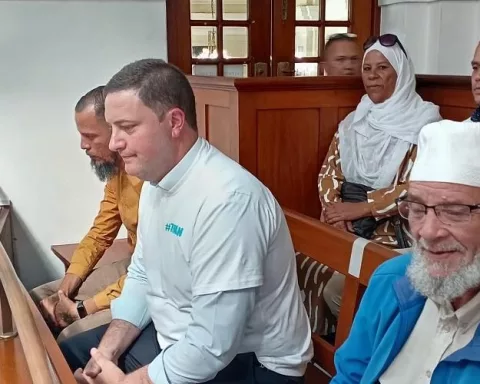In South Africa, the Department of Employment and Labour is making waves by fighting for workers’ rights and fairness in the workplace. They recovered over R10 million for underpaid employees after conducting thousands of inspections, uncovering shocking violations at places like Babel Restaurant and Ocean Basket. This bold action shows the government’s dedication to holding employers accountable and ensuring everyone gets a fair wage. The story of these efforts is not just about money—it’s about the hope for a better future for hard-working individuals across the country.
What is the significance of the Department of Employment and Labour’s actions in South Africa?
The Department of Employment and Labour’s actions are significant as they recovered over R10 million for underpaid workers, conducted extensive inspections, and imposed legal penalties on non-compliant employers. This reflects a commitment to enforcing labor laws and promoting justice and accountability in the South African labor market.
In the heart of South Africa, an inspiring story of justice and accountability is unfolding, shedding light on the persistent struggle for fair labor practices in the country. The Department of Employment and Labour has been at the forefront, conducting a series of compliance inspections and raids that have successfully recovered over R10 million owed to workers. This initiative underscores the ongoing efforts to ensure labor laws protect the most vulnerable members of society.
The Catalyst: A Complaint at Babel Restaurant
The narrative begins with a complaint lodged against Babel restaurant in Menlyn, Pretoria. Workers there alleged unfair labor practices, triggering a nationwide inspection effort. Teaming up with various law enforcement agencies, the Department of Employment and Labour embarked on a mission to scrutinize employment conditions thoroughly. The findings were startling, revealing widespread non-compliance with labor laws.
Minister Nomakhosazana Meth disclosed the results during a media briefing on October 1st. Over 2,900 raids culminated in the arrest of around 81 foreign nationals for lacking the proper documentation to work in South Africa. The minister highlighted a significant victory: the recovery of just over R10 million for employees who had been underpaid. This amount represented a tangible step toward rectifying these injustices, as employers had failed to comply with minimum wage and general salary regulations.
Meth’s statements at the briefing carried a clear message: the department was not merely content with recovering the owed amounts. They issued contravention notices to those who had broken the law to ensure employers do not flout labor laws again. For more severe violations, prohibition orders were imposed, particularly under the Occupational Health and Safety Act and the Compensation of Occupational Injuries and Diseases Act. Meth explained, “There are areas where we penalize them and they pay fines. However, if they continue to do that, we take them to court.”
Specific Violations: The Case of Babel Restaurant and Ocean Basket
The story took a more specific turn with the uncovering of violations at Babel Restaurant and Ocean Basket in Menlyn. These establishments failed to meet the provisions of the National Minimum Wage Act. The minimum wage rate for 2024/25 stood at R27.58 per hour, yet both restaurants fell short of this standard. At Babel Restaurant, cleaners and waitstaff were significantly underpaid, with the establishment owing an estimated R271,984 to cleaners and R295,547 to waiters and waitresses.
The situation at Ocean Basket was equally alarming. Waitstaff there lacked a basic salary and relied solely on tips and commissions. The employer allegedly owed these employees just over R813,000. The combined total owed to workers at these two restaurants stood at R1,381,500. These egregious violations spurred the Department of Employment and Labour to take decisive action.
The department’s proactive stance in these cases signifies a broader commitment to upholding workers’ rights in South Africa. These efforts are reminiscent of historical labor movements worldwide, where the fight for fair wages and working conditions has been a central theme. The department’s actions resonate with the ethos of these movements, emphasizing the importance of accountability and justice in the workplace.
Broader Implications: Labor Rights and Socio-Economic Context
This narrative also evokes a reflection on the broader socio-economic context in South Africa. The country’s labor market has long been a battleground for equity and fairness, shaped by its complex history and evolving economic landscape. The recovery of R10 million is not just a financial victory but a symbolic one, representing the ongoing struggle to secure dignified working conditions for all.
The department’s rigorous inspection process, involving a significant number of raids and subsequent legal actions, highlights the multifaceted approach needed to tackle labor law violations. This strategy includes immediate financial restitution for underpaid workers, punitive measures for non-compliant employers, and ongoing monitoring to prevent future violations.
Moreover, the department’s collaboration with other law enforcement agencies underscores the importance of a unified approach in addressing labor issues. This synergy enhances the effectiveness of inspections and ensures that violations are addressed comprehensively.
The Human Element: Real-Life Impact and Global Relevance
The figures and actions described in this narrative are more than mere statistics; they reflect the real-life experiences of workers who strive daily for fair treatment and adequate compensation. The department’s efforts offer a glimpse into the lives of these workers, their struggles, and the systemic challenges they face.
In an era where economic disparities continue to widen globally, the Department of Employment and Labour’s actions serve as a crucial reminder of the need for vigilant enforcement of labor laws. It also highlights the role of government agencies in protecting workers’ rights and ensuring that employers adhere to legal standards.
This story, while rooted in the specific context of South Africa, resonates with universal themes of justice, equity, and the ongoing fight for workers’ rights. It reminds us that the journey towards fair labor practices is ongoing and requires constant vigilance and proactive measures.
As we reflect on these developments, it is essential to recognize the broader implications for labor markets worldwide. The actions taken by the Department of Employment and Labour can serve as a model for other countries grappling with similar issues. The principles of fairness, accountability, and justice are universal, and the fight to uphold these values in the workplace transcends national borders.
The recovery of R10 million owed to workers is a testament to the power of collective action and the importance of robust mechanisms to enforce labor laws. It is a narrative that inspires hope and underscores the enduring relevance of the fight for workers’ rights in the modern world.
The department’s efforts, the legal frameworks supporting these actions, and the courageous workers who stood up for their rights all contribute to this compelling story of justice and accountability. This narrative serves as a reminder of the critical role of labor laws in protecting workers and promoting fair and dignified working conditions for all.
This ongoing battle for justice and fair labor practices highlights the necessity of persistent efforts and unwavering commitment to ensure that every worker receives their due rights and compensation, setting a precedent for future labor movements worldwide.
“`markdown
What actions has the Department of Employment and Labour taken to protect workers’ rights in South Africa?
The Department of Employment and Labour has conducted thousands of inspections and raids, recovering over R10 million for underpaid employees. They have issued contravention notices to non-compliant employers and imposed prohibition orders for severe violations, demonstrating a commitment to enforcing labor laws and ensuring fair treatment in the workplace.
How much money has been recovered for underpaid employees?
The Department has successfully recovered just over R10 million owed to underpaid workers, highlighting their efforts to rectify injustices and promote fair wages in the labor market.
What specific violations were reported at Babel Restaurant and Ocean Basket?
Babel Restaurant and Ocean Basket were found to have failed in complying with the National Minimum Wage Act, which set the minimum wage for 2024/25 at R27.58 per hour. At Babel, cleaners and waitstaff were significantly underpaid, while Ocean Basket’s waitstaff relied solely on tips and commissions, with substantial amounts owed to them totaling R1,381,500 between the two establishments.
What broader implications do these actions have for labor rights in South Africa?
The recovery of R10 million and the enforcement actions taken by the Department signal a broader commitment to labor rights in South Africa. This reflects ongoing struggles for fair wages and working conditions, contributing to the social and economic context in which many workers operate, and emphasizing the importance of accountability in the labor market.
How does the Department of Employment and Labour collaborate with other agencies?
The Department works in conjunction with various law enforcement agencies to enhance the effectiveness of their inspections and ensure comprehensive responses to labor law violations. This collaborative approach helps facilitate thorough scrutiny of employment conditions and promotes stronger enforcement of labor laws.
Why is this narrative significant beyond South Africa?
The actions of the Department of Employment and Labour resonate with universal themes of justice, equity, and the fight for workers’ rights, serving as a reminder of the ongoing need for vigilance in labor law enforcement globally. The success story from South Africa can inspire similar movements in other countries facing challenges in protecting workers’ rights and ensuring fair compensation.
“`












